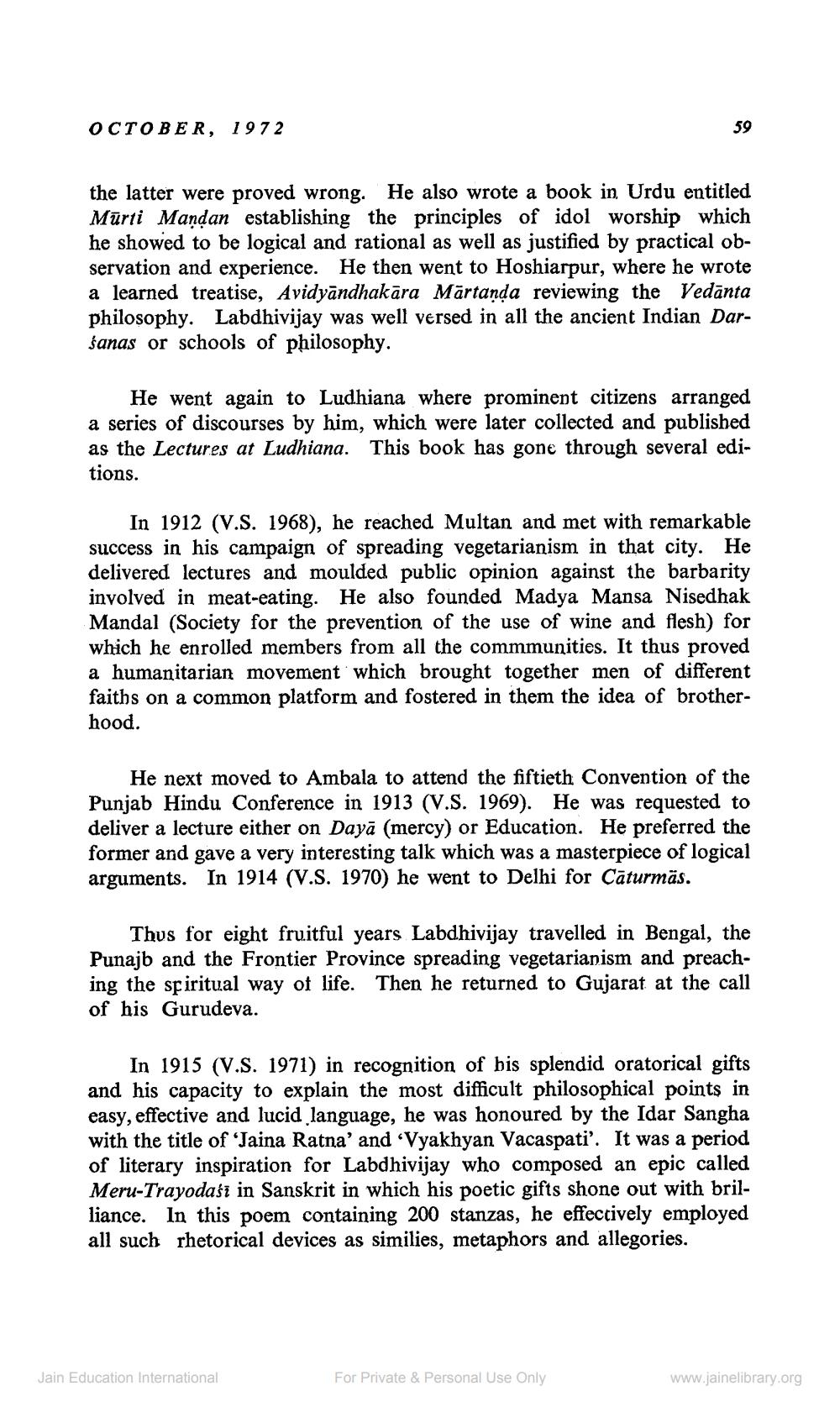________________
OCTOBER, 1972
59
the latter were proved wrong. He also wrote a book in Urdu entitled Mūrti Mandan establishing the principles of idol worship which he showed to be logical and rational as well as justified by practical observation and experience. He then went to Hoshiarpur, where he wrote a learned treatise, Avidyāndhakāra Mārtanda reviewing the Vedānta philosophy. Labdhivijay was well versed in all the ancient Indian Daršanas or schools of philosophy.
He went again to Ludhiana where prominent citizens arranged a series of discourses by him, which were later collected and published as the Lectures at Ludhiana. This book has gone through several editions.
In 1912 (V.S. 1968), he reached Multan and met with remarkable success in his campaign of spreading vegetarianism in that city. He delivered lectures and moulded public opinion against the barbarity involved in meat-eating. He also founded Madya Mansa Nisedhak Mandal (Society for the prevention of the use of wine and flesh) for which he enrolled members from all the commmunities. It thus proved a humanitarian movement which brought together men of different faiths on a common platform and fostered in them the idea of brotherhood.
He next moved to Ambala to attend the fiftieth Convention of the Punjab Hindu Conference in 1913 (V.S. 1969). He was requested to deliver a lecture either on Dayā (mercy) or Education. He preferred the former and gave a very interesting talk which was a masterpiece of logical arguments. In 1914 (V.S. 1970) he went to Delhi for Cāturmäs.
Thus for eight fruitful years Labdhivijay travelled in Bengal, the Punajb and the Frontier Province spreading vegetarianism and preaching the spiritual way of life. Then he returned to Gujarat at the call of his Gurudeva.
In 1915 (V.S. 1971) in recognition of his splendid oratorical gifts and his capacity to explain the most difficult philosophical points in easy, effective and lucid language, he was honoured by the Idar Sangha with the title of Jaina Ratna' and `Vyakhyan Vacaspati'. It was a period of literary inspiration for Labdhivijay who composed an epic called Meru-Trayodasi in Sanskrit in which his poetic gifts shone out with brilliance. In this poem containing 200 stanzas, he effectively employed all such rhetorical devices as similies, metaphors and allegories.
Jain Education International
For Private & Personal Use Only
www.jainelibrary.org




